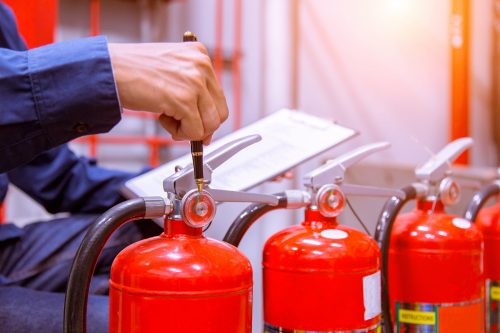A person who is interested in becoming a firefighter, forensic scientist or fire investigator may want to know what fire science is. This is the study of what causes destructive fires, including both man-made and natural fires. The field of expertise borrows from other disciplines, including physics, chemistry, forensics, engineering, criminal science, psychology and more.
All Aspects of Fire
Fire science examines all aspects of natural and man-made fires. It includes fire used for accepted or lawful purposes as well as arson and other fire-related crimes. Earning a degree in this area of expertise prepares a person for investigating fires, their origin and their spread. It also prepares a person to coordinate a response to fires and to handle emergencies. The academic study is often coordinated with fieldwork that involves practice fires or controlled fires so that students can see and experience the types of fires and environments affected by them.
Principles Applied to Fire Science
The principles of many other sciences are applied to fire science. For example, fire investigators may apply the principles of physics to determine how a fire spreads within a home and where it started. They may also apply principles of chemistry to determine how hot a fire burned and whether or not an accelerant was used in the fire. Forensics may be applied to the investigation of fires. When examining the scene of a house fire that resulted in a death, investigators might look at the burn marks on a body relative to the burn marks on non-living items in the structure. Emergency response management, physiology, meteorology, soil science, climate science, environmental science and psychology are also a part of the study of fires.
Areas of Study in Fire Science
There are many topics or areas of study in fire science. Firefighting tactics are a big part of the field. This often gets broken down into fighting fires in urban, residential single family, property and wooded environments. It also includes coordination of the firefighting response. The use of firefighting equipment is another big topic in this field of study. The hydraulic pumps, hoses, chemicals and water supply are considered. Rescue and recovery topics are a part of the study, too. Investigation of the sources and causes of fires, including determination of arson versus accidents, are part of the study of fires. The field of study also includes the history of fire and the psychology of the criminal use and abuse of fire. Some other topics in this field include fire prevention, wildfire management, hazardous materials management, fire education and fire suppression systems, explains the National Fire Protection Association.

Related Resource: 25 Best Affordable Fire Science Degree Programs
Types of Careers a Person Could Have With a Degree in Fire Science
Many people who earn a certification or degree in fire science begin their career as a firefighter. This could include rural, city or wildfire services. After a person has some experience as a firefighter, they might want to move into another role, such as fire suppression systems, fire prevention education or fire investigations.
People with a degree in fire science could get advance in their careers, working up to a fire chief or management position with some experience. Knowing what fire science is could help a person choose a career path or a college major.
 The Best Colleges
The Best Colleges The Lowest Costs
The Lowest Costs The Highest Returns
The Highest Returns